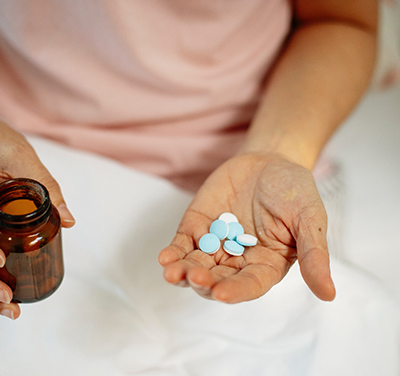Bipolar disorder, once called manic-depressive disorder, leads to severe behavioral and emotional challenges in about 83% of all those diagnosed with the condition. If your life is affected by bipolar disorder and you wonder whether better treatment will ever be available, you should know that the team at New Hope Clinical Research are dedicated to finding new medication options, testing them in clinical trials, and getting them to patients. If you’d like to participate in a clinical trial for bipolar disorder medications, call the clinic in Charlotte, North Carolina, or book an appointment online.
New Hope Clinical Research
Research Clinic located in Charlotte, NC

Bipolar Q & A
What are the different types of bipolar disorder?
Patients with bipolar disorder experience recurring changes in their mood and energy. The changes cycle between periods of mania and depression, with balanced behavior between the mood swings.
However, the severity and duration of mania and depression vary, depending on the type of bipolar disorder:
Bipolar I disorder
When you have bipolar I disorder, you have intense manic episodes. These periods are sometimes so severe they require hospitalization. Patients with bipolar I disorder also typically experience periods of major depression.
Bipolar II disorder
Patients with bipolar II disorder experience one or more major depressive episodes and at least one hypomanic episode. You could also have a mixed episode, which is when depression and hypomania exist at the same time.
Cyclothymic disorder
This type of bipolar disorder occurs when you have many episodes of hypomanic and depressive symptoms. Although you have numerous mood swings, your symptoms are milder than full-blown mania or depression.
What are the symptoms of bipolar disorder?
Hypomania has the same symptoms as full-blown mania, but the episodes are less severe and usually don’t interfere with your daily responsibilities.
Symptoms of mania include:
- An elevated sense of importance
- Excessive energy
- Maintaining a high activity level
- Difficulty sleeping
- Talking very quickly
- Feeling agitated and irritable
- Having racing thoughts
- Engaging in risk-taking behaviors
Participating in risk-taking behaviors could mean over-spending, promiscuity, and substance use.
Symptoms of depression include:
- Feeling extremely sad, hopeless, or empty
- Low energy or fatigue
- Diminished activity
- Sleeping too little or too much
- Difficulty concentrating
- Eating too much or too little
- Thinking about suicide
When you’re diagnosed with bipolar disorder, the first line of treatment is medication, but it’s often combined with behavioral therapy.
How do clinical trials help find new treatment options for bipolar disorder?
Clinical trials are performed to evaluate new treatments, determining whether an investigational drug is safe and effective for patients with bipolar disorder.
Some clinical trials are designed to test a new use for an existing drug or to study two different drugs to determine which one produces the best results.
Clinical trials ultimately produce new medication options for patients with bipolar disorder, offering new hope to those who struggle to control their mood swings.
The team at New Hope Clinical Research have a cutting-edge clinical facility, where they conduct ongoing clinical trials for investigational bipolar medications. If you’d like to participate in an existing or future clinical trial, call or book an appointment online.








